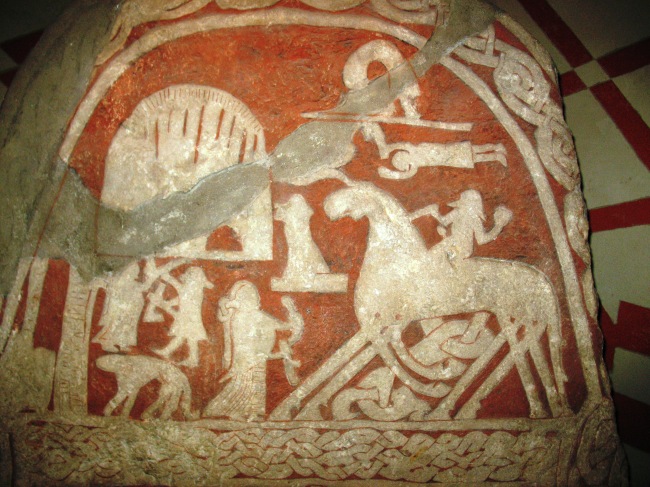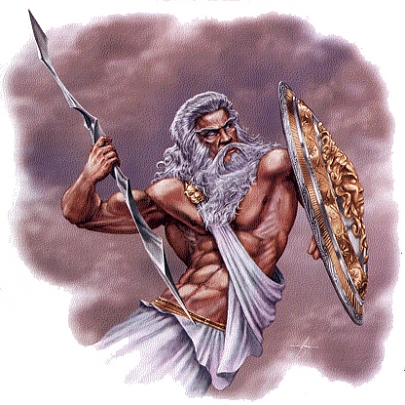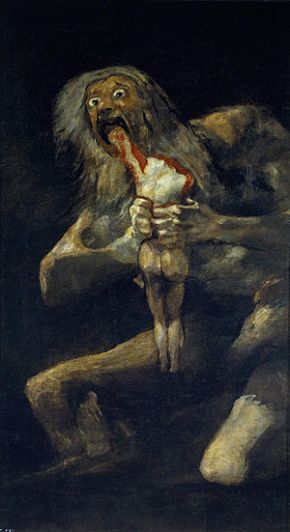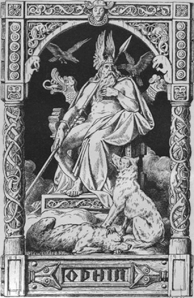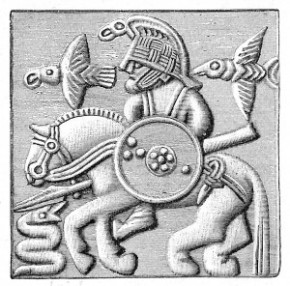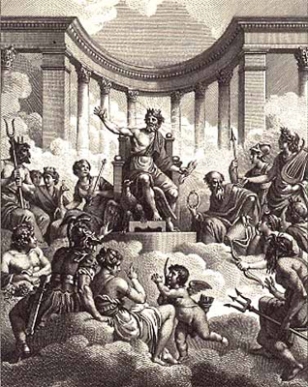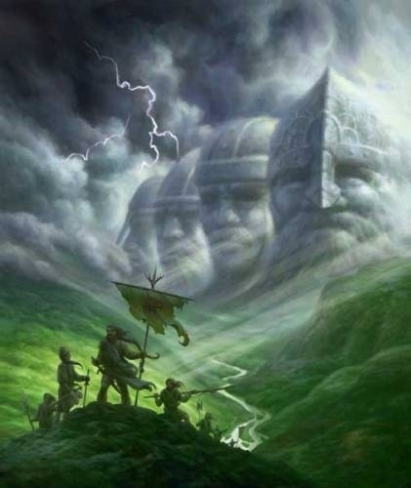I was rather disappointed to find that Greek mythology does not have a definitive way their Gods and Goddesses meet an end. After spending a great deal of time researching the parallels between Greek and Norse mythology I began to see the pattern in the ways they differed and the ways they were similar. It became more and more apparent as to the nature of the different civilizations view of their Gods.
As I stated before, the Gods of each civilization had very different attributes and traits that were associated with them. The Greeks were not only immortal, but spent their time in a fantastical manner. The Norse Gods knew the end was coming, and it was considered to be their fate to all day in glorious combat. True Vikings could not go to Valhalla unless they died in combat, or looked upon the face of the person who would be executing them. It had little to do with moral association and had more to do with glory and victory. Opposed to the Greeks who had a more traditional view of the after life where the bad went to the underworld or Tartarus, and the good went to a Heavenly place.
http://upload.wikimedia.org/wikipedia/commons/e/ed/Arrival_at_Valhalla.jpg
My research for a means of the Greek Gods ceasing to be powerful led me to Hellenistic Rationalization. The Roman civilization appropriated the Greek mythology seeing as they didn’t have one of their own, but they wanted to modernize it by combining gods to seem more reasonable. For instance they wanted to base the Gods off of historical figures and heroes rather than just idealized God figures. This Roman idea is much closer to the Norse belief of heroes over Gods. As time progressed and Christian influence took a strong hold, the Greek Gods “lost power”. The only explanation I found in regards to the Greek Mythological “end” was when the Gods receive less worship and attention, they fade away.
To contrast this with a definitive End of Days story, the Norse mythology builds up to the end with every event of the Ragnarok. The Ragnarok was the predetermined end of the Germanic Norse Gods. It was the whole basis of the idea behind the fact that the Norse Gods were more mortal than god, but were only Godlike based on their accomplishments and glory. The event was the way the Norse believe the world was reborn, almost like the Christian Ark story, but with much more blood shed. The Ragnarok marked the end of the old world and the rebirth of the new world.
The battles that occurred during the Ragnarok were the essential battles of good verse evil. The Norse Gods such as: Odin, Thor, and Freyja, along with the “heroic dead”, or warriors who died in glorious combat and were welcomed into Valhalla battled against the forces of evil. On the side of the evil you had the frost giants led by the traitor to the gods Loki, as well as the unworthy dead who came from Hel. So essentially it was a giant battle of Gods versus monsters and zombies.
The story is an incredibly tragic one, where the Gods all knew the outcome before they began, but part of their culture was to fight despite the impending doom. The majority of the Gods perish during the battle on the Vigrid Plain, but the Gods who did survive were generally considered minor ones. Odin, the king of the Gods met his demise when he was consumed by the father of the Wolves Fenrir, a beast so monstrous they had him bound when he was young. In order to avenge his father, his son Vioarr allowed Fenrir to bite down on his arm, so he could his other to slay him in close quarters.
Ultimately the forces of good triumph, at a great cost to their ranks. Legends say two humans survived by hiding inside the world tree Yggdrasil, and they were the ones who repopulated after the world was devestated.

Sources:
https://en.wikipedia.org/wiki/Greek_mythology#Hellenistic_and_Roman_rationalism
http://pechpet.blogspot.com/2012/10/hellenistic-and-roman-rationalism.html
